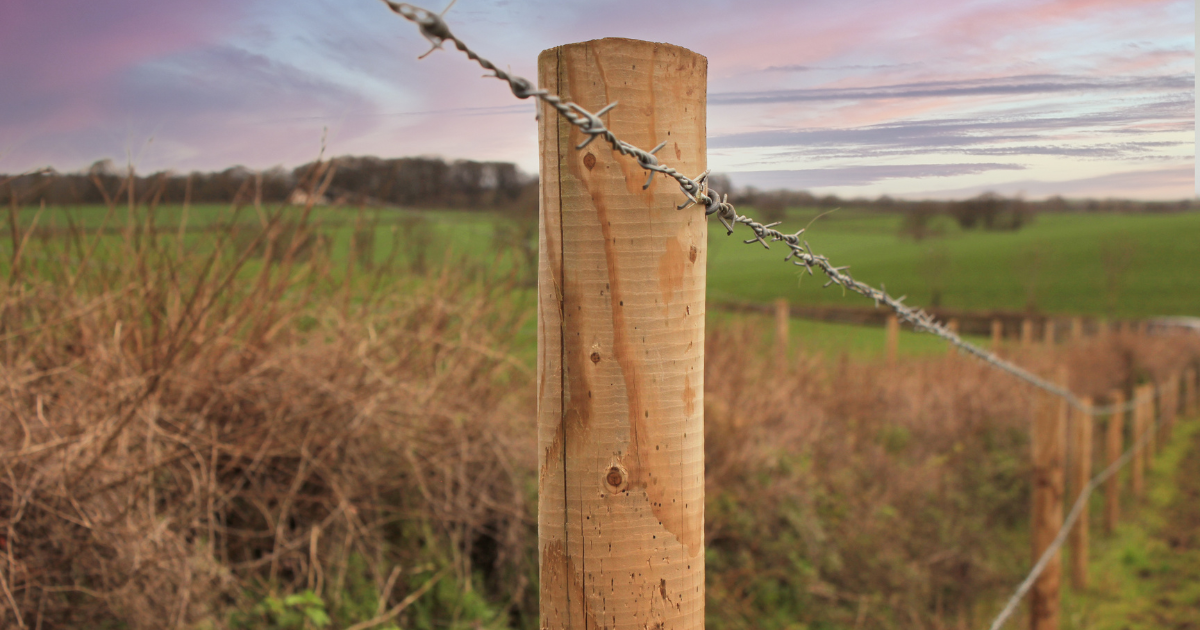
Timber you can trust
The war in Ukraine has reduced timber exports around the world but the man in charge of sourcing our fencing products, Ian Hedden, is confident we’ll have a reliable timber supply for years to come. He explains how we do it.
I often get asked how do you secure enough stock for all of your stores? Being the UK’s largest procurer of round timber, it can be quite a challenge.
As a business we buy in the region of two million fencing stakes, strainers and struts every year. We distribute to our 56 stores nationwide, or even direct from sawmill to farm. Consistency of supply, confidence in the product and manufacturer backing are some of the considerations we have to make.
Since I started at Mole Valley Farmers in 2014, homegrown Shield products have been part of our range, putting more than 12 million stakes in the ground since day one.
Market volatility around treated European redwood from Belarus means it has never been more important to be at the very heart of homegrown British timbers and British manufacturing.
The Russian conflict with Ukraine has had a massive impact for many products reaching our shores. The fact that Belarus, the leading producer of redwood pine fencing materials, is allied to Russia has stopped all supply into the UK.
So, by having an alternative and market-leading homegrown product strategy in place, we are confident we’ll have a comprehensive and sustainable supply for many years to come.
Being as close as I am to the manufacturing process, the most critical element for a homegrown spruce is the conditioning of the product prior to treatment. Getting the correct moisture level is vital for performance and this is achieved through kiln drying.
Prior to this process the product is incised, meaning we make small incisions at the ground contact area within the stake. This ensures the sap wood element of the stake is correctly treated and is meeting its 15 year, UC4 classification.
Added to that, we also have our unique 15 year warranty. If a failure occurs, we will refund the cost of a replacement, as well as make a contribution towards the cost of reinstallation.
As a Product Manager, I need to make sure we have auditable standards, all the correct manufacturing processes are met and the products hit our yards in tip-top condition.
Confidence in home grown spruce materials for fencing is at an all-time high and the sales of timber products reflect this. But I still believe there is confusion in the marketplace.
The treatment of choice, copper, chrome and arsenic (CCA) was outlawed back in 2006. It was a highly effective but toxic chemical. It was widely used in all timber treatment and after it was banned the treatment industry developed a copper-based replacement. Between 2006 and 2013 premature failures in fencing materials were causing the industry huge headaches. It was clear the new treatment was not working and changes had to be made.
While copper is still the main agent in today’s treatment, timber conditioning was quickly identified as the solution to treating spruce products. In 2014, we launched Shield and are extremely proud of its performance. We are confident every product we sell will meet the expectation of our customers, as well as meet the standards set by the industry. All of this is underpinned by a robust, efficient and sustainable supply chain.
The good relationship we have with the team at M&M Timber allows us to work extremely closely. We work closely on forecasting and when they deliver finished products into stores, the wagon will often go to a forest and collect raw material which then goes back to be processed into fencing materials.
This is a true partnership built on supporting you - our customers and members alike.










